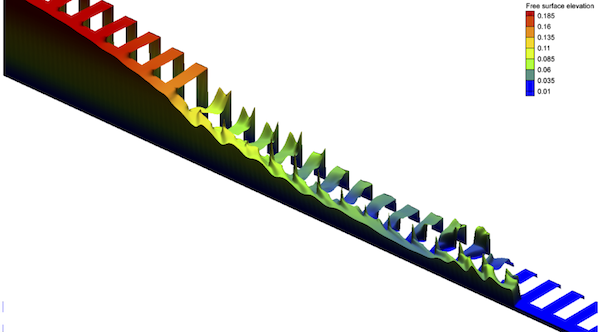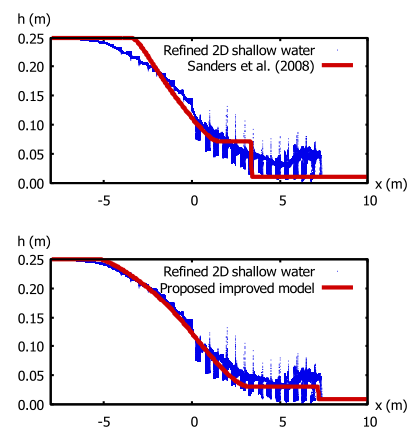Section: New Software and Platforms
SW2D
Participants : Carole Delenne, Vincent Guinot.
Urban floods are usually simulated using two-dimensional shallow water models. A correct representation of the urban geometry and hydraulics would require that the average computational cell size be between 0.1 m and 1 m. The meshing and computation costs make the simulation of entire districts/conurbations impracticable in the current state of computer technology.
An alternative approach consists in upscaling the shallow water equations using averaging techniques. This leads to introducing storage and conveyance porosities, as well as additional source terms, in the mass and momentum balance equations. Various versions of porosity-based shallow water models have been proposed in the literature. The Shallow Water 2 Dimensions (SW2D) computational code embeds various finite volume discretizations of these models. Ituses fully unstructured meshes with arbitrary numbers of edges. The key features of the models and numerical techniques embedded in SW2D are
-
specific momentum/energy dissipation models that are active only under transient conditions. Such models, that are not present in classical shallow water models, stem from the upscaling of the shallow water equations and prove essential in modeling the features of fast urban flow transients accurately
-
three different closure relationships between the averaged flow variables and porosity-based fluxes
-
modified HLLC solvers for an improved discretization of the momentum source terms stemming from porosity gradients
-
higher-order reconstruction techniques that allow for faster and more stable calculations in the presence of wetting/drying fronts.
|




